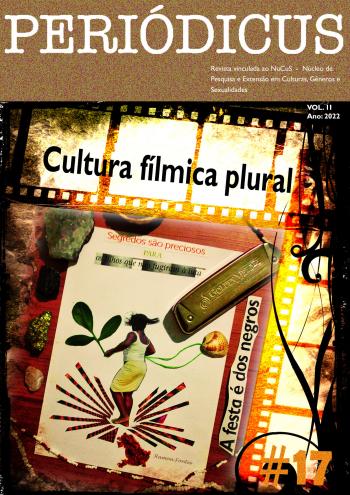Essa bicha é engraçada
A Relação Entre Comicidade e Sexualidade no Texto Greta Garbo, Quem Diria, Acabou no Irajá
DOI:
https://doi.org/10.9771/peri.v2i17.47317Resumo
Este artigo pretende analisar como a comicidade presente na obra dramatúrgica Greta Garbo, quem diria, acabou no Irajá (1974), de autoria de Fernando Mello, atua como um importante dispositivo político para o debate de questões relacionadas às sexualidades. A peça teatral, escrita e encenada durante a ditadura civil-militar no Brasil, evidencia uma conflituosa relação de amor entre os personagens-tipo: Pedro, um homossexual afetadíssimo, e Renato, um jovem interiorano que, por uma cilada do destino, torna-se um garoto de programa. Nessa perspectiva, este trabalho problematiza a característica política do cômico que, no texto de Mello, atua como um valoroso elemento para a visibilidade e protagonismo do personagem bicha (Pedro), como também do amor guei, em um grave período da história do nosso país em que os sujeitos homossexuais eram vistos como inferiores e patológicos.
Downloads
Downloads
Publicado
Como Citar
Edição
Seção
Licença
Copyright (c) 2022 Caio César Silva Rocha, Alberto Tibaji

Este trabalho está licenciado sob uma licença Creative Commons Attribution-NonCommercial 4.0 International License.
Autores que publicam nesta revista concordam com os seguintes termos:
Autores mantêm os direitos autorais e concedem à revista o direito de primeira publicação, com o trabalho simultaneamente licenciado sob Licença Creative Commons Attribution Noncommercial que permite o compartilhamento do trabalho com reconhecimento da autoria e publicação inicial nesta revista, sendo vedado o uso com fins comerciais.
Autores têm autorização para assumir contratos adicionais separadamente, para distribuição não-exclusiva da versão do trabalho publicada nesta revista (ex.: publicar em repositório institucional ou como capítulo de livro), com reconhecimento de autoria e publicação inicial nesta revista.
Autores têm permissão e são estimulados a publicar e distribuir seu trabalho online (ex.: em repositórios institucionais ou na sua página pessoal) a qualquer ponto antes ou durante o processo editorial, já que isso pode gerar alterações produtivas, bem como aumentar o impacto e a citação do trabalho publicado (Veja O Efeito do Acesso Livre).








